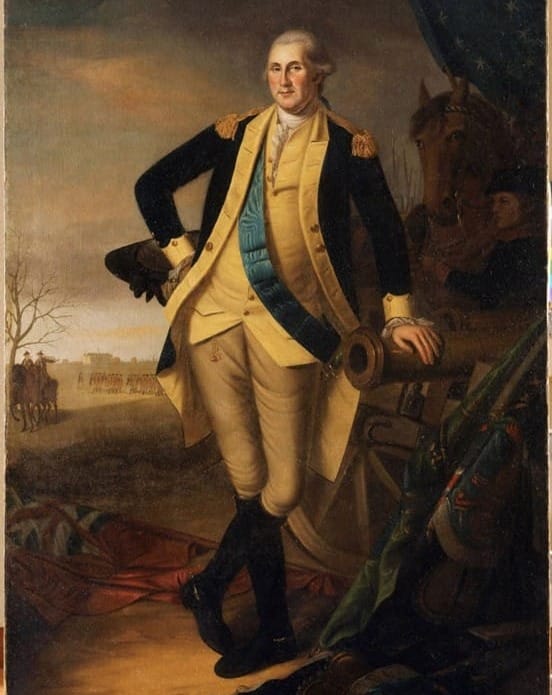The Best Foreign Policy Presidents - Washington

The following list is “subjective” (what else?) and can be challenged on several points. The “criteria” was based upon the support/advance of American values, geopolitics, longevity, the impact upon the political globe and, finally, the degree of cohesion and unity that it had upon the electorate. Generally, the list is confined to “peacetime” diplomacy rather than during wartime.
I still believe that my list remains accurate for the historic record, however it might be argued from other ideological/national interest viewpoints.
That is … except the first of which I will refuse neither discussion nor dissent.
Without doubt the very first President and the very first “foreign policy” was, and by far, still is the best among all forty-five Presidents. George Washington’s Farewell Address, where it was announced, remains to-this-day among the most “incisive” and “far-reaching” foreign policies ever adopted by any national sovereignty in history.
One would have to search the past very carefully to find a competitor. Perhaps Otto von Bismarck and Germany in the 1860 to 1890 time period; maybe the decisions from the Congress of Vienna (1815) but little else is comparative (The late German-American historian-diplomat Henry Kissinger believed in the Vienna Conference; see his A World Restored (1957).
But for America, George Washington was truly a “Father” to the country that he brought forth into the world.
Washington
The year was 1796 and Washington was finishing his second term. As Farewell to the country that he formed, with help from Treasury Secretary Alexander Hamilton, he published his “Farewell Address” in a Philadelphia newspaper, September 17.

Washington had been criticized in parts of the country, particularly on the “Jay Treaty” (1794) that encouraged trade with Britain despite the behavior of the British Navy. What he generally proscribed still resonates within the electorate and, as “advice” from the Eighteenth Century, may-well be still “definitive.”
The following categories summarize the main points of Washington’s message:
Foreign Policy
Washington’s advice here stems almost directly from the geopolitical realities of America’s position separated by 3,000 miles of ocean from Europe, the center of both war and peace for the world:
“Why forgo the advantages of so peculiar a situation? Why quit our own to stand upon foreign ground? Why, by interweaving our destiny with that of any part of Europe, entangle our peace and prosperity in the toils of European ambition, rivalship, humor, or caprice?”
Future Policies
Technically, Washington was not an isolationist and recognized that future possibilities might serve to make the U.S. a global power:
“the period is not far off when we may defy material injury from external annoyance … when belligerent nations will not lightly hazard the giving us provocation; when we may choose peace or war, as our interest guided by justice shall counsel.”
Unity
Washington emphasized the need for unity, as the essential attribute for any future, be it isolation, intervention, foreign or domestic:
“The unity of government which constitutes you one people is also now dear to you. It is justly so; for it is a main pillar in the edifice of your real independence, the support of your tranquility at home, your peace abroad, of your safety, of your prosperity, of that very liberty which you so highly prize.”
Threats to Unity
As with contemporary circumstances, there were in the Eighteenth Century threats to the very unity that the country needed to survive. And Washington understood these enemies:
“But as it easy to foresee that, from different causes and from different quarters, much pains will be taken, many artifices employed, to weaken in your minds the conviction of this truth; … it is of infinite moment that you should properly estimate the immense value of your national Union to your collective and individual happiness; that you should cherish a cordial, habitual, and immovable attachment to it.”
Liberty
Washington understood that the “bottom line” in America’s survival and prosperity was the political doctrine Liberty, as enshrined in the Declaration of Independence:
“Interwoven as is the love of liberty with every ligament of your hearts, no recommendation of mine is necessary to fortify or confirm the attachment.”
Nationalism
Washington was well aware that the appeal to “nation” versus sectional values was essential for continuity:
“The name of American, which belongs to you, in your national capacity, must always exalt the just pride of patriotism more than any appellation derived from local discrimination.”
Militarism
As opposed to European governments, often supported by armies, Washington understood the dangers of the military in politics:
“Hence likewise they will avoid the necessity of those overgrown military establishments which, under any form of government, are inauspicious to liberty, and which are to be regarded as particularly hostile to republican liberty.”
Debt
As are many today, Washington opposed the accumulation of public debts:
“ … avoiding likewise the accumulation of debt, not only by shunning the occasions of expense, but by vigorous exertions in time of peace to discharge the debts which unavoidable wars may have occasioned, not ungenerously throwing upon posterity the burden of which we ourselves ought to bear.”
Parties
One gets the sense that the Farewell Address was written against political parties, the source of much of the disunity of Washington’s America. The same holds true today:
“…the common and continual mischiefs of the spirit of party are sufficient to make it the interest and the duty of a wise people to discourage and restrain it. It serves always to distract the public counsels and feeble the public administration. It agitates the community with ill-founded jealousies and false alarms, kindles the animosity of one part against the other, foments occasional riot and insurrection. It opens the door to foreign influence and corruption, which find a facilitated access to the government itself through the channels of party passion.”
Does any of the above sound familiar to Americans in the Twenty-first century? Washington’s technical advice actually lasted 150 years, until the Truman Doctrine of 1947 (with some “deviations,” like 1917).
Washington’s Farewell eventually became adopted by the “isolationist” label and grew as “Doctrinal” during the Nineteenth and early Twentieth Centuries. This provided the country room and capacity to develop and expand itself until it eventually became the “superpower” that won two world wars and a Cold War.
It all began in the Eighteenth Century with the first President and there is sufficient evidence that his advice may still resonate in this Century, as Americans appear still to be searching for a “definitive” role in world affairs. The “endless wars” of the recent past plus the disaster in Afghanistan appear to call for new foreign policies.
Or, to the contrary, to restore the old.
Perhaps taking sides with Billions of military aid in Ukraine can turn this around.
But can it last 150 years?
Point of Order: of all the sub-categories of Washington’s message in 1796 every single one has either been violated or challenged by subsequent Administrations, especially the last several. In many ways, America is “back where it started.”
There are two main approaches to that dilemma:
Dismissive: of course, the country is many times larger now.
Acceptance: values and principles are “timeless.” Do you dismiss values of youth because you are now old and fat?